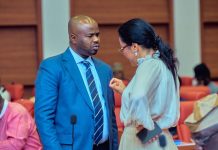In a decisive move to ease the financial burden on parents and strengthen educational integrity across the state, the Abia State Government has introduced sweeping reforms within the basic and secondary education system.
The new policies—approved during this week’s Executive Council meeting chaired by Governor Alex Otti in Umuahia—are designed to promote affordability, accountability, and sustainability in the education sector.
Addressing journalists after the meeting, the Commissioner for Information, Prince Okey Kanu, announced that graduation ceremonies will henceforth be limited to terminal classes—Primary 6 and SS3—in both public and private schools.
According to the Commissioner for Basic and Secondary Education, Goodluck Ubochi, the decision was reached after observing that graduation events in nursery and lower primary classes had gradually turned into expensive social celebrations, placing undue financial pressure on parents.
“It is unnecessary for parents to spend heavily on graduation ceremonies for children who are only moving from one class to another,” Ubochi explained. “This policy ensures that such celebrations are reserved for genuine academic milestones.”
Cutting Costs Through Smarter Textbook Policies
In another cost-saving measure, the government has separated textbooks from workbooks. This new approach allows families to reuse textbooks for younger children, while individual workbooks—intended for written exercises—will remain personal to each student.
“This simple but thoughtful policy will save families significant amounts every school year,” Ubochi noted. “It encourages prudent spending and sustainability.”
Reinforcing Standards and Accountability
To enhance transparency and educational accountability, the government also introduced measures to ensure that students follow proper academic progression. All schools—public and private—must now participate in a state-organized mandatory promotion examination for SS2 students.
Students who fail to meet the required standards will not be promoted to SS3, and school transfers between SS2 and SS3 are now strictly prohibited. The government says this policy aims to discourage examination malpractice, which often occurs when students switch schools to manipulate academic records or external exam results.
“This is about integrity. We are building a system where every student earns promotion based on merit, not manipulation,” Ubochi emphasized.
Making Education More Accessible
The government also directed parents to collect their children’s First School Leaving Certificates (FSLC)—documents often neglected after primary school. To ensure accessibility, schools have been instructed not to charge more than ₦2,000 for the issuance of the certificates.
Furthermore, students preparing for WAEC, NECO, or JAMB must now present their FSLC before registration, reinforcing the importance of educational documentation from the earliest levels.
A Commitment to Affordable, Quality Education
The Abia State Government reaffirmed that these reforms are part of a broader strategy to restore discipline, integrity, and financial fairness in the education system.
“These measures are designed to reduce financial pressure on parents, promote accountability, and ensure that quality education remains within reach for all Abia children,” Ubochi stated.
With these initiatives, the state is setting a new standard for responsible governance—one that prioritizes both learning outcomes and the financial well-being of families.






